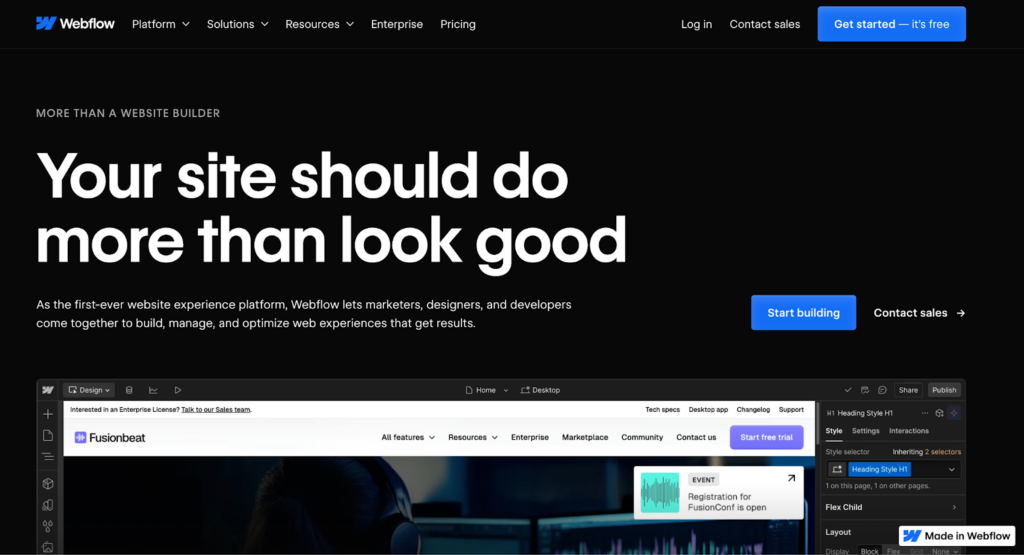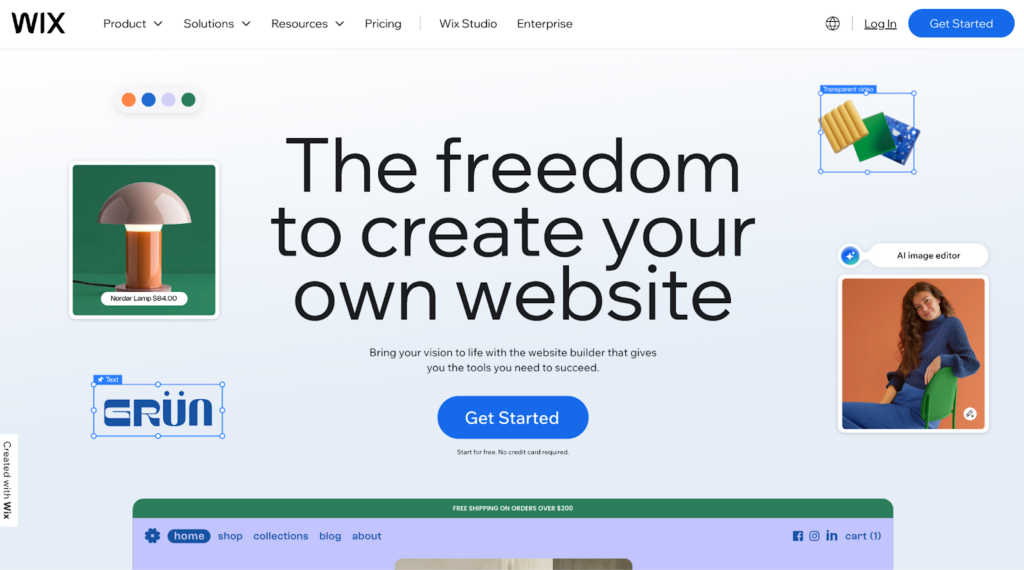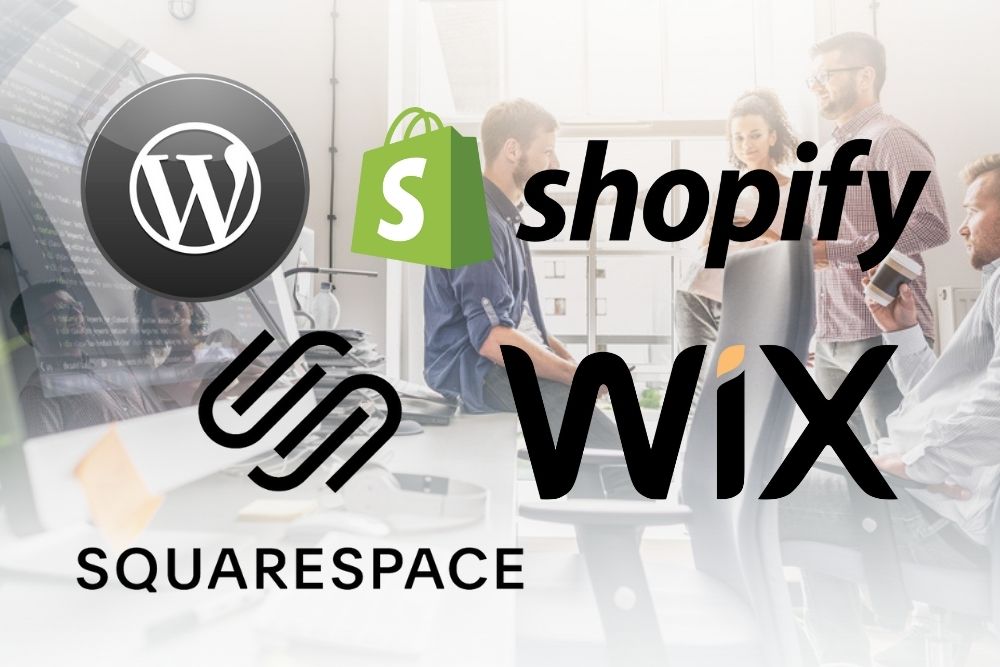As a small business owner or entrepreneur, choosing the right Content Management System (CMS) is a critical decision that can significantly impact the efficiency and success of your website. Whether you’re building a blog, an online store, or a business site, the right CMS can save you time, help you scale, and allow you to easily update your content. Here are the top 5 CMS platforms we recommend for small businesses and entrepreneurs in 2025, each offering unique features and capabilities suited for different needs.
1. Webflow CMS Platform

Overview: Webflow is a powerful CMS that integrates web design, CMS, and hosting into one seamless platform. It’s known for its user-friendly, visually-driven editor and offers extensive design flexibility without needing deep coding skills. Many of our clients at WAM Strategies prefer Webflow for its easy-to-use interface and the speed it provides when managing visually appealing, responsive websites.
Key Features:
- Visually-driven editor
- Responsive design tools
- Customizable animations
- Built-in SEO tools
- Hosting included
Pros:
- Highly flexible design capabilities
- Ideal for designers who want control over aesthetics
- No need for coding knowledge
- SEO and hosting tools are built-in
- Scalable for businesses of all sizes
Cons:
- Can be overwhelming for beginners who don’t have design experience
- Higher-tier plans can become expensive as the website grows
Best For: Designers, small businesses, and anyone who wants full design control without coding.
Pricing: Starts at $12/month for basic sites; CMS plans start at $16/month.
Website: Webflow
2. WordPress CMS Platform

Overview: WordPress powers over 40% of the world’s websites, making it one of the most popular and versatile CMS platforms available. As an open-source platform, WordPress provides a wealth of customization options through plugins and themes. While it offers immense flexibility, beginners may find it challenging due to the vast number of plugins and regular updates required.
Key Features:
- Thousands of plugins and themes
- Extensive customization options
- Strong SEO tools
- Huge community for support
Pros:
- Highly customizable with plugins and themes
- Strong SEO features and tools
- A massive community of developers and users
- Open-source, so it’s free to use
Cons:
- Steep learning curve for beginners
- Frequent updates required for plugins and themes
- Can become slow with too many plugins
Best For: Bloggers, businesses, and anyone looking for a highly customizable CMS with extensive integrations.
Pricing: Free to download, but hosting and premium themes/plugins are additional costs. Hosting plans start at $3/month.
Website: WordPress
3. Wix CMS Platform

Overview: Wix is an ideal choice for those who want to get a website up quickly without any technical hassle. It’s a drag-and-drop website builder with hundreds of customizable templates. Wix is great for small businesses or individuals who need a simple site without worrying about code or advanced features.
Key Features:
- Drag-and-drop editor
- Hundreds of customizable templates
- Built-in SEO tools
- Mobile optimization
- Easy app integrations
Pros:
- Extremely user-friendly
- No coding knowledge required
- Quick setup with pre-made templates
- Affordable pricing options
Cons:
- Less flexibility for advanced design
- Limited features on the free plan
- Can be difficult to scale if your business grows
Best For: Small businesses, personal projects, or anyone who needs a simple, hassle-free website.
Pricing: Free for basic features (with ads); paid plans start at $16/month for ad-free sites.
Website: Wix
4. Shopify CMS Platform

Overview: Shopify is a leading e-commerce platform designed for entrepreneurs looking to sell products online without the headache of coding. It provides a complete set of tools for product management, payments, shipping, and analytics, making it perfect for small businesses who want to set up an online store quickly and easily.
Key Features:
- Integrated payment gateway
- Easy product management tools
- Customizable storefronts
- Inventory tracking
- Powerful analytics
Pros:
- Perfect for e-commerce businesses
- Streamlined setup process with everything you need integrated
- Excellent customer support
- Secure payment processing
Cons:
- Monthly costs can add up with additional apps and features
- Less customization flexibility than some other platforms
Best For: Anyone looking to launch an online store without technical headaches.
Pricing: Starts at $39/month for the Basic plan.
Website: Shopify
5. Squarespace CMS Platform

Overview: Squarespace is known for its sleek, modern templates that are perfect for creative professionals, including photographers, artists, and small business owners. It’s an all-in-one platform that offers easy-to-use design tools, built-in e-commerce capabilities, and analytics. While it’s ideal for those who prioritize aesthetics, users may hit limitations when they need advanced customization.
Key Features:
- Beautiful, mobile-responsive templates
- Drag-and-drop editor
- Built-in e-commerce tools
- Integrated analytics
Pros:
- Stunning, professionally designed templates
- Easy to set up and manage
- Mobile-friendly and responsive
- Integrated e-commerce features
Cons:
- Limited customization compared to other platforms
- Can become costly with higher-tier plans
- Not ideal for advanced web development
Best For: Creative professionals, small businesses, and anyone who needs a visually appealing website with easy-to-use tools.
Pricing: Plans start at $16/month.
Website: Squarespace
Final Thoughts
Selecting the right CMS for your website in 2025 depends on your specific needs, technical skill level, and business goals. Whether you’re building a simple website, an online store, or a blog, these five CMS platforms offer a range of features to help you get the most out of your website. Webflow, WordPress, Wix, Shopify, and Squarespace each come with their own set of advantages and limitations, so be sure to consider what will work best for your business.
Remember, a well-chosen CMS will streamline your website management and help you grow your online presence with ease.

